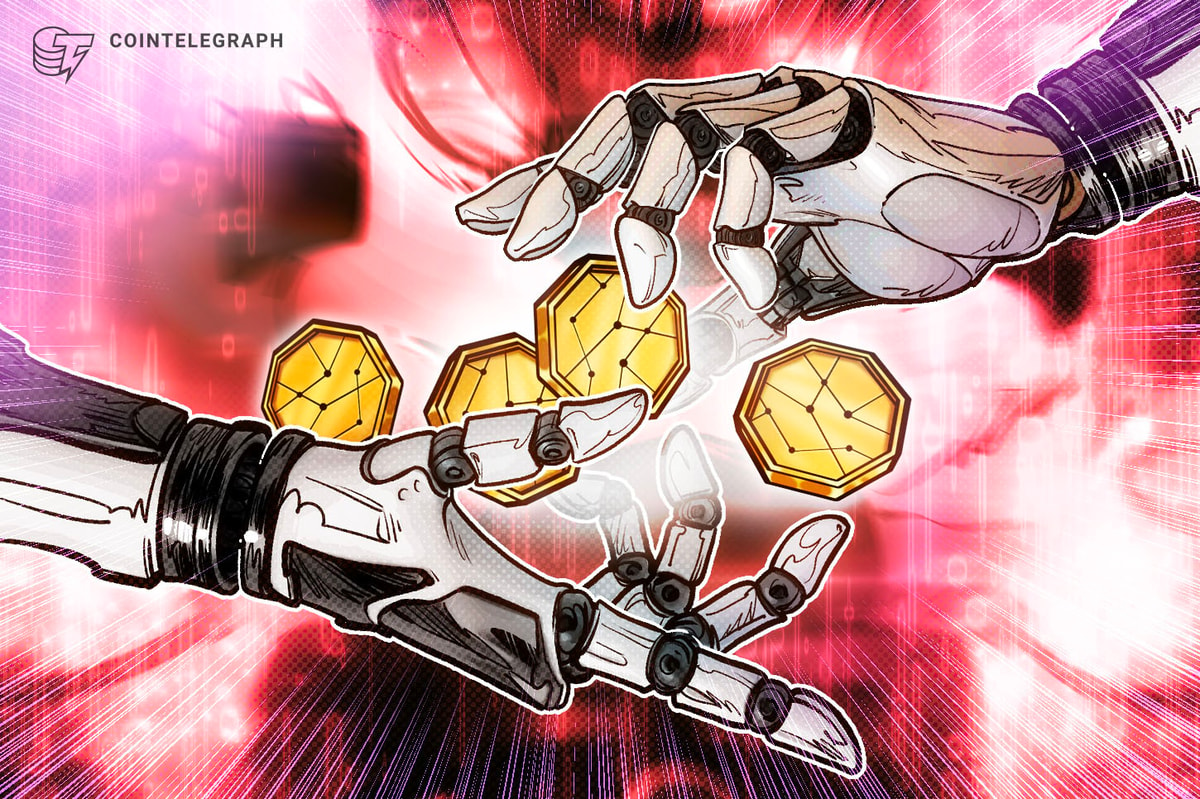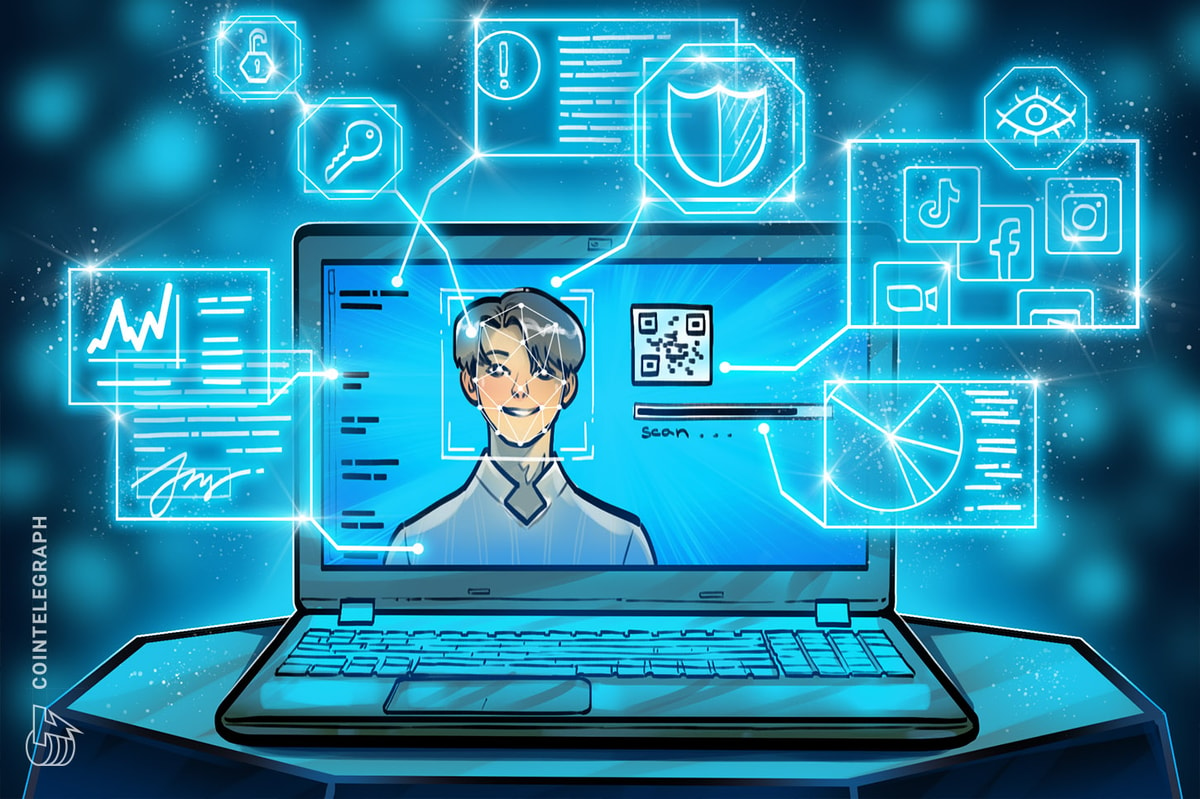Artificial Intelligence and Blockchain: A Confluence of Technologies
Artificial intelligence and blockchain are two of the most frequently used buzzwords over the past 12-24 months. For a time (and arguably still today), all a company needed to do was mention either word to their investors to pique interest and send share prices soaring. But as tempting as it is to be cynical about zeitgeists such as these, there are sound reasons that the invocation of either concept is so powerful. It’s because there is a basis for the hype.
The London Blockchain Conference 2024
The AI-enhanced blockchain session of the London Blockchain Conference 2024 was one of the better subscribed on Day 2. Two leaders took the stage to discuss the transformative potential of integrating artificial intelligence into blockchain operations: Ijeoma Okoli, director at Digital Economy Initiative, joined moderator Stefania Barbaglio, founder at Cassiopeia.
Okoli’s Insights
Okoli is a former financial lawyer with a boatload of U.S. and U.K regulatory experience, and that’s the vantage point from which she assesses both of these technologies. Barbaglio starts off at the deep end: how can AI help blockchain be more efficient? Okoli says that in light of AI’s ability to analyze data and then use that to make predictions, proves that the technology could be used to project congestion periods within blockchain ecosystems.
Scalability
One of those issues is about scalability. Transaction speeds limit the growth of blockchains, says Okoli. Looking at BTC and Ethereum: BTC, on average, processes 7 TPS, while ETH processes 30 TPS. Financial services payment service providers dwarf that. Visa processed 6,800 TPS, for instance. That’s a huge disparity. Not only that, the transaction speeds of the likes of BTC and ETH typically slow to a crawl during periods of high congestion.
AI’s Potential
Okoli says that in addition to analyzing data on (or waiting to be put on) the chain, it could audit blockchain applications for vulnerabilities. Instead of waiting for the software to be released to the world and then relying on white hats or black hats to discover any exploits, AI could do that work quickly and efficiently. The same can be said for detecting fraud. Okoli raises the Ethereum hack of last year to illustrate. In April, there was an exploit on the Ethereum blockchain where validators manipulated a vulnerability to make away with $25 million. What was important here was that it was the first exploit of its kind, highlighting a vulnerability in the post-merge validation process that was only detected at the time it was being exploited. So, says Okoli, AI could have been used to audit and detect the vulnerability before the bad actors did, but it also would have helped with detection once the exploit began being used to steal money.
Challenges
Next, Barbaglio asks: what about the challenges of AI integrating with blockchain? Perhaps unsurprisingly, given Okoli’s background, her answer was: regulation. Though now, as both these technologies have already begun working their way into the consciousness of legislators and regulators, the issue is more grappling with the many regulatory frameworks that have become or are making their way into law over the past 12 months.
The EU AI Act
Okoli points out that just this week, the new Artificial Intelligence Act came into force in the European Union. She calls it the ‘first of its kind in the world, focusing specifically on AI.’ "To the extent that folks are looking to incorporate AI into the blockchain systems, you not only have to think about the [EU and UK Markets in Financial Instruments] and the Securities Exchange Act, you have to now think about the EU AI Act and the obligations it imposes on you." "It’s a risk-based model," she explains, "prohibiting certain things. But it has extra-territorial effect. So just because you aren’t in the EU doesn’t mean you don’t need to pay attention to it."
Conclusion
In conclusion, the confluence of artificial intelligence and blockchain has the potential to revolutionize the way we think about data, security, and scalability. As regulators begin to grapple with the implications of AI and blockchain, it’s essential that companies and individuals alike understand the importance of integrating these technologies in a responsible and compliant manner.
FAQs
Q: What are the benefits of integrating AI with blockchain?
A: The benefits of integrating AI with blockchain include improved scalability, enhanced security, and increased efficiency.
Q: How can AI help blockchain be more efficient?
A: AI can help blockchain be more efficient by analyzing data and making predictions about congestion periods, auditing blockchain applications for vulnerabilities, and detecting fraud.
Q: What are the regulatory challenges of integrating AI with blockchain?
A: The regulatory challenges of integrating AI with blockchain include grappling with the many regulatory frameworks that have become or are making their way into law over the past 12 months, including the EU AI Act.
Q: How can companies ensure compliance with regulatory frameworks when integrating AI with blockchain?
A: Companies can ensure compliance with regulatory frameworks by conducting risk assessments, making disclosures, and cooperating with authorities.









